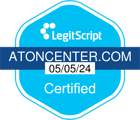SMART Recovery, as a treatment model, incorporates parts of Cognitive Behavioral Therapy with mindfulness training and what is referred to as the SENs. The emphasis on Sleep, Exercise, and Nutrition highlights the SMART emphasis on lifestyle balance as a key component in recovery. Philosophically, the SMART-model approaches addiction from a client-centered perspective, with the fundamental assumption that change-talk more than any other variable predicts long-term recovery.
The model is very much aligned with the principles of Motivational Interviewing. In a nutshell, the more change-talk that a therapist can nurture early on in treatment, the more likely an ambivalent client will continue with therapy. Change-talk, it is argued, helps to internalize motivation to quit, and to underscore the reasons why someone may need to quit. All the while, it enhances a client’s confidence in his or her ability to actually change the course of his or her life.
The SMART-approach relies on the client’s wisdom, assuming as it does that the individual already possesses the answers and skills needed to stop. Since the SMART-model stresses self-control and collaboration with clients, while promoting the idea that recovery may not necessarily be a life-long struggle, it’s a treatment modality better suited for those who identify themselves as independent-minded.
If you shy away from meetings, for the sake of your individuality, then the SMART-model may be an alternative approach to help you or a loved-one quit.
Kevin Murphy, PsyD
Licensed Psychologist
AToN Center 888-535-1516
Originally posted on September 11, 2017 @ 12:12 am


















